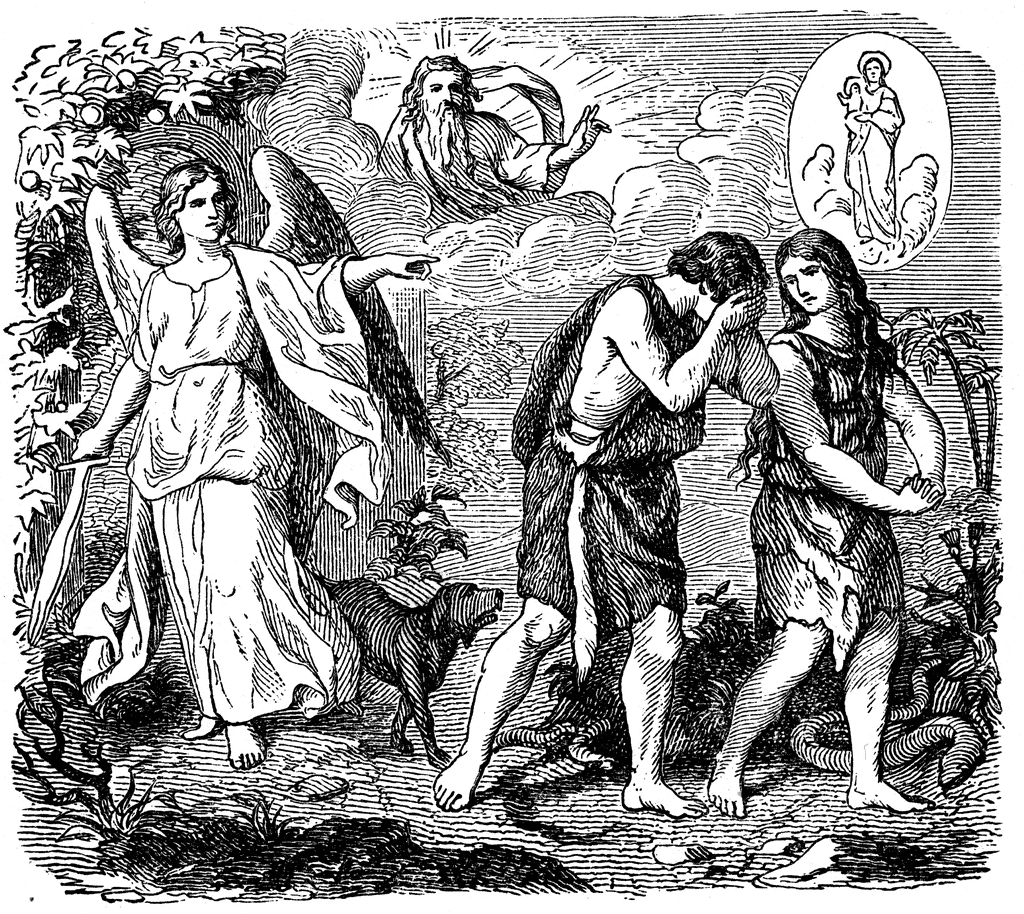
Expulsion from the Garden of Eden ClipArt ETC
The Biblical narrative of the Garden of Eden and the expulsion faced by Adam and Eve is one that has long fascinated artists, and Thomas Cole was no exception. His painterly depiction of the expulsion must surely rank amongst the most vivid and unforgettable: the canvas portrays a stark division between the idyllic Eden on the right hand side.

John Faed Expulsion of Adam and Eve from the Garden of Eden ca. 1880 Adam and eve, Cleveland
Masaccio, Expulsion of Adam and Eve from Eden, Brancacci Chapel, Santa Maria del Carmine, Florence, Italy, ca. 1424--1427. Fresco, 7' x 2' 11". Created by Beth Harris and Steven Zucker. Questions.
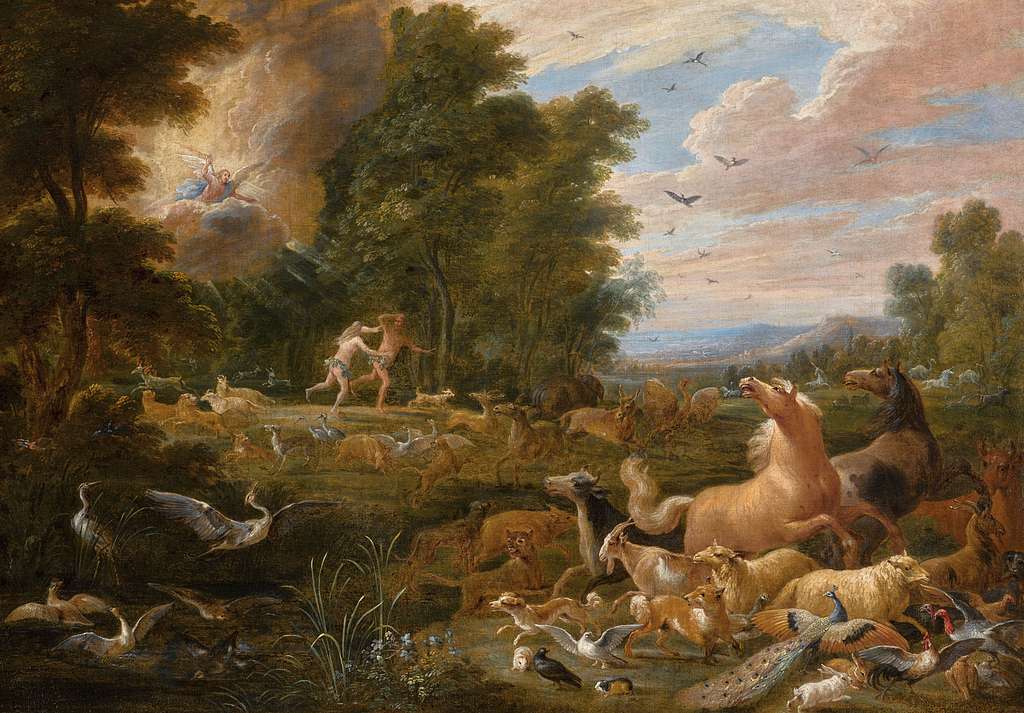
Lambert de Hondt (I) Expulsion from the Garden of Eden PICRYL Public Domain Media Search
It's a common misconception to think that Adam and Eve's expulsion from the Garden of Eden was God's way of punishing the first man and woman for disobeying his instructions. In line with that wrong notion, artists (as in the picture below) typically portray the expulsion scene with an angel, serving as God's agent of wrath, rather.

Expulsion from the Garden of Eden, 1827 1828 Thomas Cole
The painting, Adam and Eve - Expulsion from the Garden of Eden, showcases Masaccio's mastery understanding of colour, perspective, and form. The impeccable painter from the renaissance era is one of the first founding artists from his time. The artwork is considered a fresco; a type of mural based on lime paint that was executed during the.
.jpg)
The expulsion of Adam and Eve from the Garden of Eden
Thomas Cole, Expulsion from the Garden of Eden. Thomas Cole, Expulsion from the Garden of Eden, 1828, oil on canvas, 100.96 x 138.43 cm / 39-3/4 x 54-1/2 inches (Museum of Fine Arts, Boston). Created by Beth Harris and Steven Zucker.
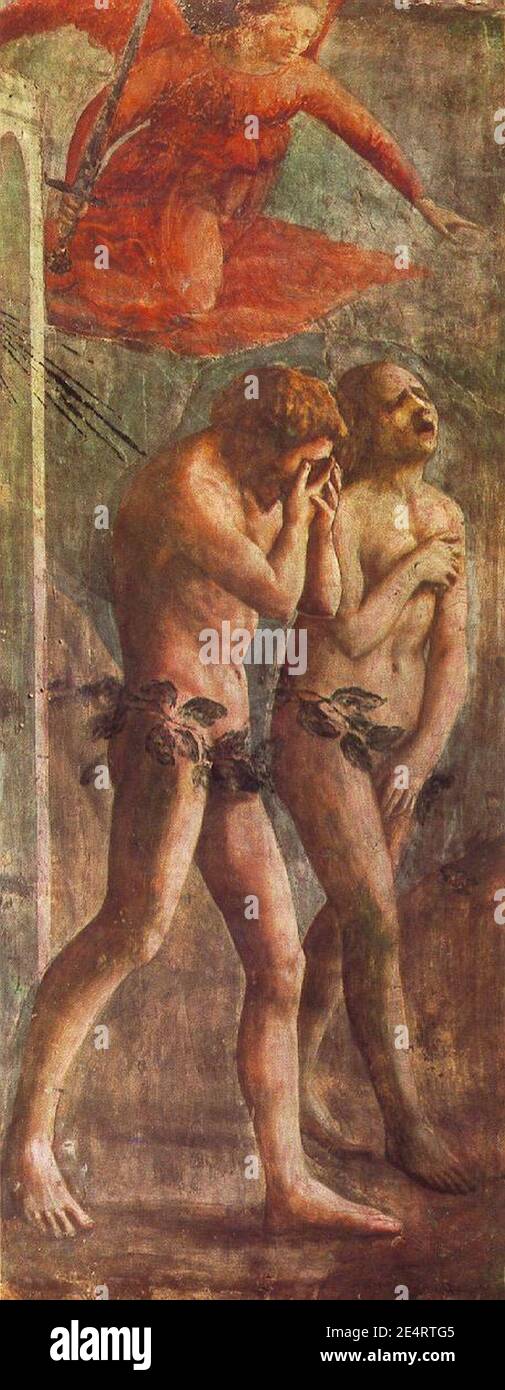
Masaccio The Expulsion from the Garden of Eden Stock Photo Alamy
Expulsion from Eden. 1 Now the snake was the most cunning[ a] of all the wild animals that the Lord God had made. He asked the woman, "Did God really say, 'You shall not eat from any of the trees in the garden'?" 2 The woman answered the snake: "We may eat of the fruit of the trees in the garden; 3 it is only about the fruit of the.
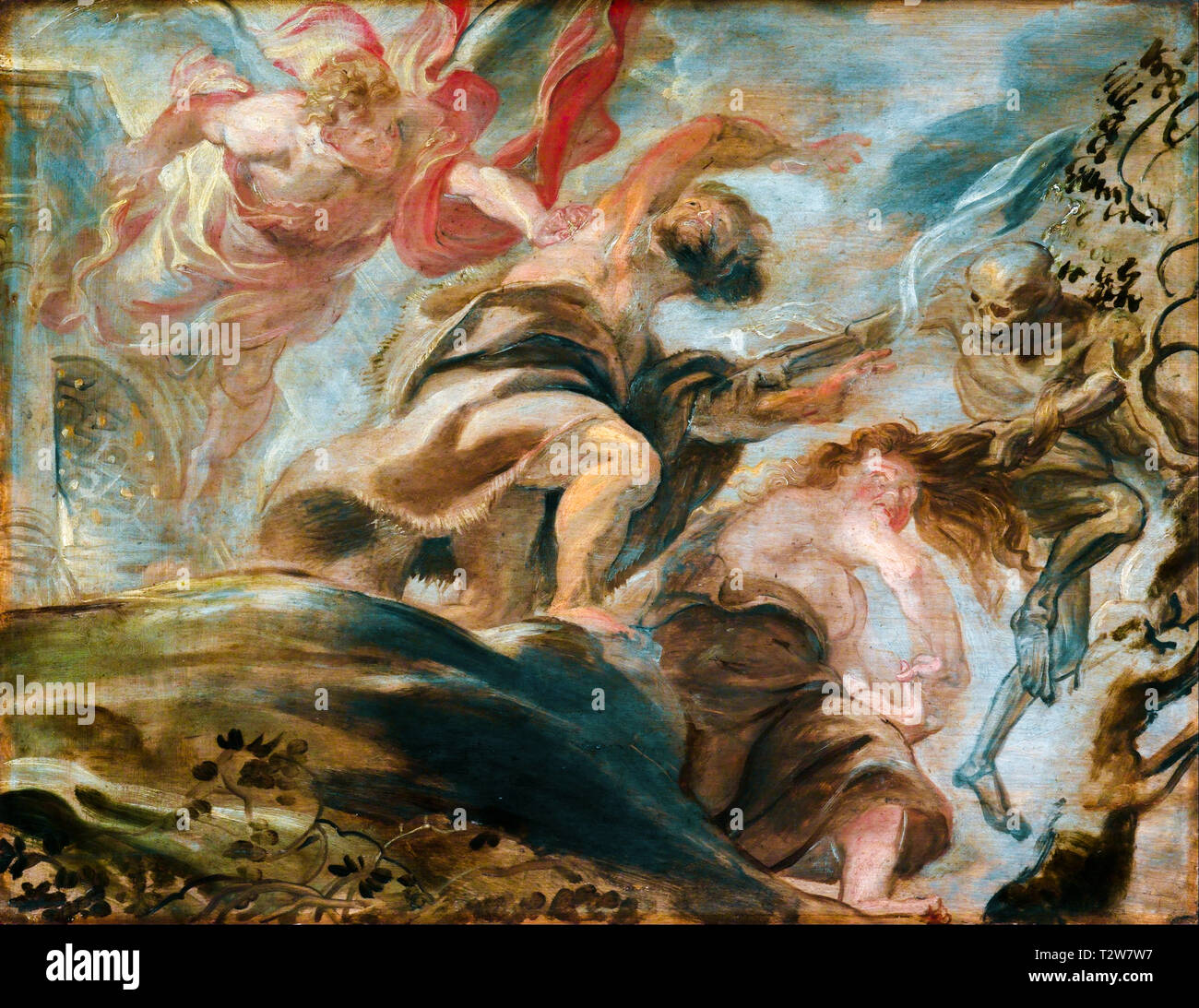
Peter Paul Rubens, Expulsion from the Garden of Eden, Adam and Eve painting, 1620 Stock Photo
Video \(\PageIndex{1}\): Thomas Cole, Expulsion from the Garden of Eden, 1828, oil on canvas, 100.96 x 138.43 cm (39-3/4 x 54-1/2 inches) (Museum of Fine Arts, Boston) SmartHistory images for teaching and learning: Click on image for larger picture (External link to flickr)

Expulsion from the Garden of Eden 18271828 Painting Thomas Cole Oil Paintings
Masaccio, Expulsion. Masaccio, The Expulsion from the Garden of Eden, Brancacci Chapel of Santa Maria della Carmine in Florence (113 K) 1426-28. Fresco, 208 x 88 cm. Web Gallery of Art.

Cole Thomas Expulsion From the Garden of Eden 1828 Religious/Biblical Landscape Fine Art Print
The Expulsion from the Garden of Eden. 1426-27. Fresco, 208 x 88 cm. Cappella Brancacci, Santa Maria del Carmine, Florence. This fresco was cut at the top during the 18th century architectural alterations. This is one of the frescoes in the chapel which has suffered the greatest damage, for the blue of the sky has been lost.
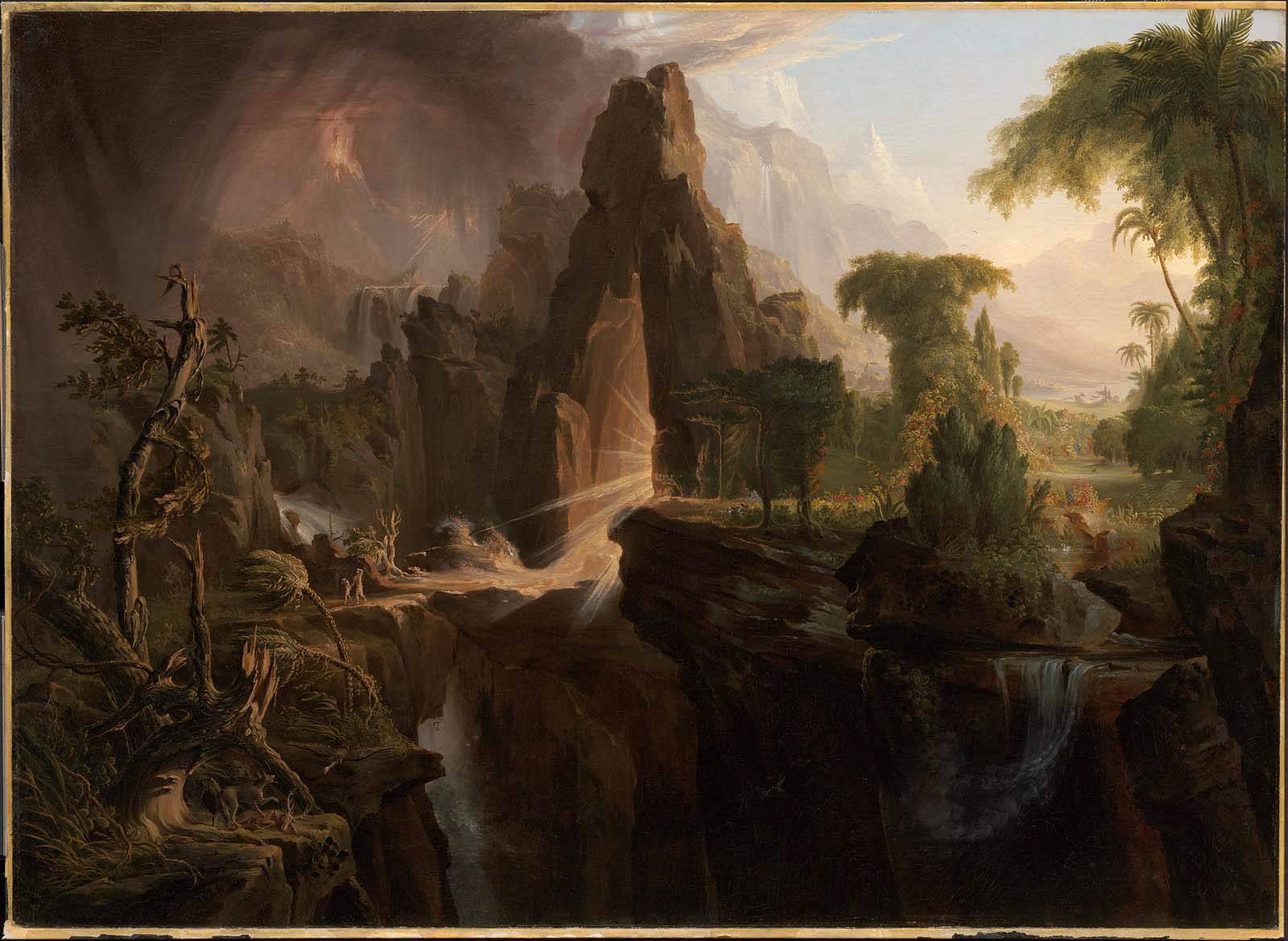
Expulsion from the Garden of Eden Museum of Fine Arts, Boston
Expulsion from the Garden of Eden (or Expulsion from Paradise) was painted in 1828 by English-born American painter Thomas Cole.It belongs to the collection of the Museum of Fine Arts, Boston and is on display in their Waleska Evans James Gallery (Gallery 236). This landscape painting exemplifies the style of the Hudson River School, which was a group of American landscape painters that Thomas.

Flemish School, 17th Century , The expulsion of Adam and Eve from the garden of Eden Christie's
Thomas Cole first exhibited Expulsion from the Garden of Eden along with his Garden of Eden (Amon Carter Museum, Fort Worth, Texas) in 1828 at the National Academy of Design in New York, of which he had been a founding member. Writing to his patron Robert Gilmore, Cole noted that his submissions aimed for a higher form of landscape painting..

Thomas Cole Expulsion from the Garden of Eden. Detail. 182728. Oil on canvas Free art prints
Join us as we delve into John Milton's epic poem 'Paradise Lost,' a gripping narrative that explores the biblical tale of the Fall of Man, Lucifer's rebellion, and the consequential expulsion from the Garden of Eden. Discover the intricacies of Milton's vivid imagination, the celestial hierarchy, and the moral dilemmas faced by Adam and Eve.

Expulsion from the Garden of Eden [Thomas Cole] Sartle Rogue Art History
Having displeased the Lord by eating forbidden fruit that gave them knowledge of good and evil, Adam and Eve were expelled from Eden. Rather than describing their anguish through pose and expression, as artists traditionally had done, Cole told the story through the landscape, contrasting Paradise, lush and tropical, with the harsh, violent, external world.
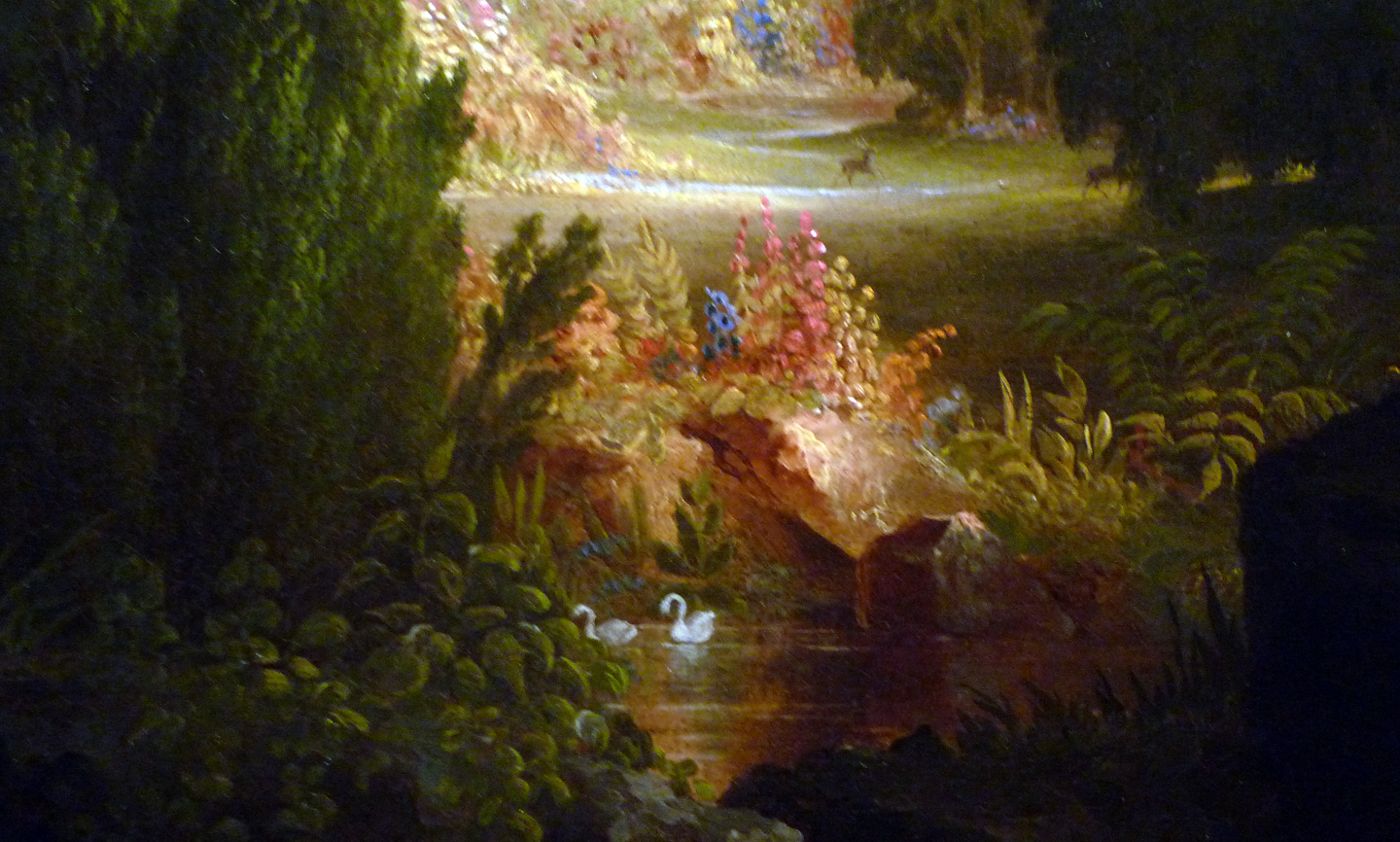
Expulsion from the Garden of Eden, Thomas Cole, Oil, 1828 r/Art
Expulsion from the Garden of Eden by Thomas Cole. Publication date 1828 Usage Public Domain Mark 1.0 Topics Bible, Cole, Eden, Expulsion from Paradise, art, painting. Addeddate 2020-08-31 17:05:32 Checksums expulsion-from-the-garden-of-eden_files.xml Identifier expulsion-from-the-garden-of-eden Year
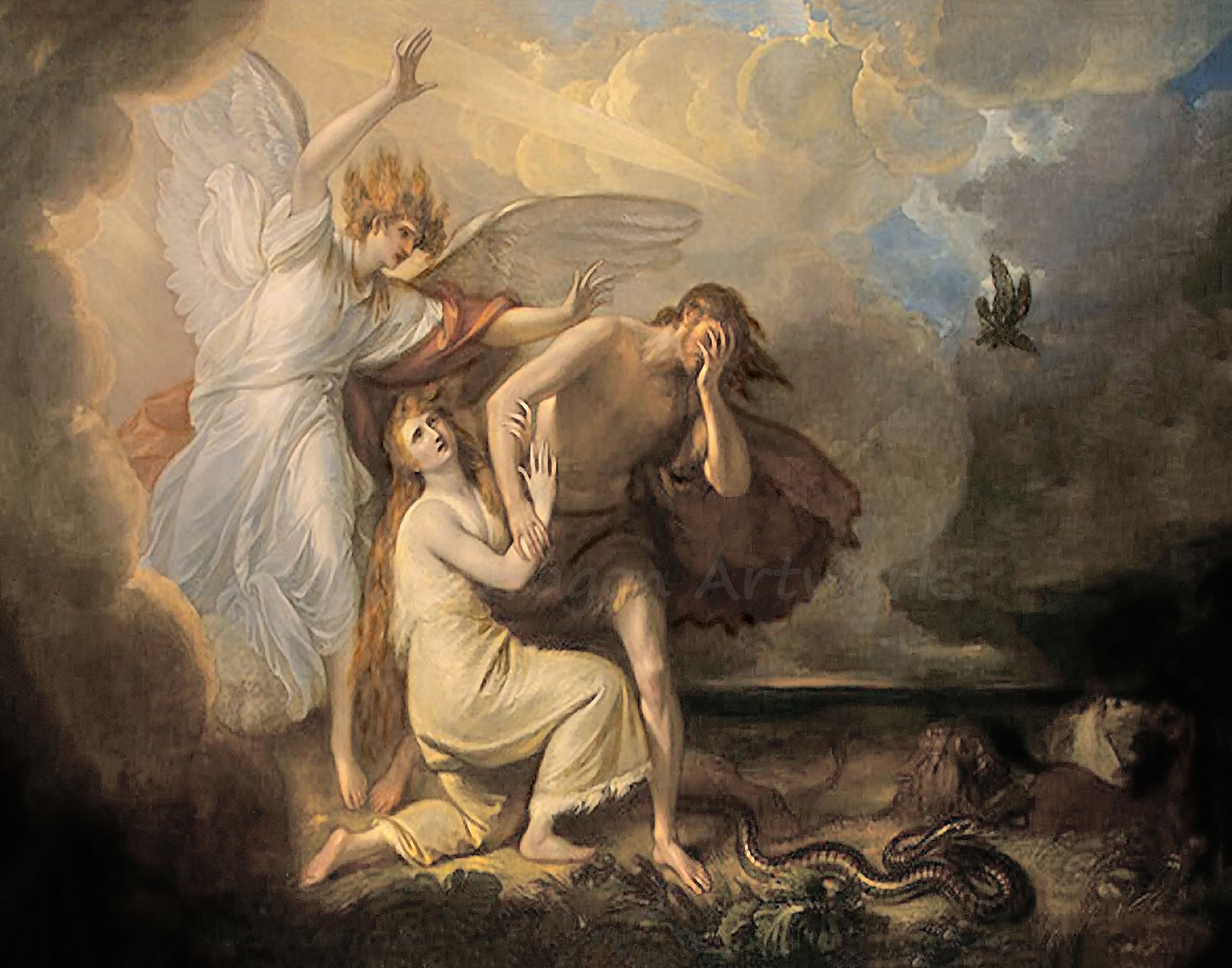
Benjamin West the Expulsion of Adam and Eve From the Etsy
Masaccio's Expulsion from the Garden of Eden (ca. 1427) is the loudest painting I've ever encountered. I saw it while walking silently around Florence's Brancacci Chapel, a tiny room covered with incredible Renaissance art. Yet I was transfixed by this particular fresco.Nearly 15 years later, I can still hear that endless howl of despair as Adam and Eve are ordered out of the Garden of Eden.

Expulsion from the Garden of Eden Museum of Fine Arts, Boston
The Garden of Eden motifs most frequently portrayed in illuminated manuscripts and paintings are the "Sleep of Adam" ("Creation of Eve"), the "Temptation of Eve" by the Serpent, the "Fall of Man" where Adam takes the fruit, and the "Expulsion". The idyll of "Naming Day in Eden" was less often depicted.